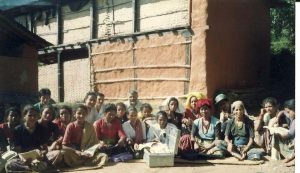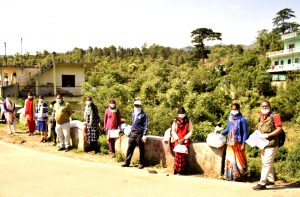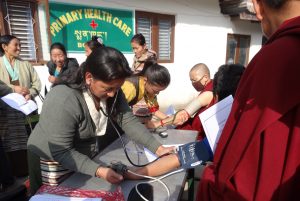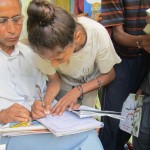Rocket Stoves for Munsel-ling School Project
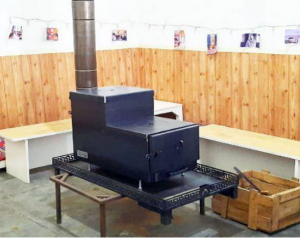
For more than 20 years, TRAS has supported the 500 students and staff at Munsel-ling School, located in the Spiti Valley region of northern India. Residents of Spiti Valley experience harsh winter conditions — with temperatures often plunging to -30°C and below — which results in annual road closures between neighbouring towns for up to eight months of the year. The remoteness of Munsel-ling School means that self-sufficiency is of the utmost importance.
This year, TRAS is fundraising to support the purchase and installation of 68 rocket stoves, which will replace all of the iron stoves at Munsel-ling School. These rocket stoves are made locally in Himachel Pradesh and installed by a merchant from the nearby town of Kaza. The iron stoves that are currently installed will be sold for recycling.
The need to fund these rocket stoves is twofold. First, the rocket stoves will decrease the amount of smoke within the school, which will have a positive influence on the respiratory health of students, staff, and volunteers. Second, the rocket stoves are more efficient than their iron counterparts, which means that fewer resources, like wood and cow dung, need to be expended in order to heat the classrooms, dormitories, and staff quarters at Munsel-ling School.


Health
Woodsmoke pollution has been shown to increase the risk of respiratory disorders and genetic defects in children. In mountain deserts like the Spiti Valley, communities often burn cow dung because wood is a scarce resource. This also affects lung health, as up to 25% of the arsenic found within cow dung can be absorbed into human respiratory tracks when it is burned. All of this may increase susceptibility to serious respiratory illnesses, including COVID-19.
The rocket stoves that TRAS is fundraising for are 90% smokeless. As it uses 50% less materials to produce the same amount of heat, less cow dung can be used to fuel Munsel-ling School during the frigid winter months. This means healthier lungs and happier kids.


Sustainability
Spiti Valley is located in a mountain desert with little forest cover and sparse vegetation. As a result, the region is not conducive to lumber production or cattle raising, meaning that firewood is expensive and cow dung is hard to come by.
The rocket stoves TRAS is fundraising for consume 50% less materials than the iron stoves currently installed at Munsel-ling School, while producing the same amount of heat. Because the stoves contain a secondary combustion chamber, less energy and heat are lost, making it a far more efficient alternative. The replacement of these stoves therefore promotes both environmental sustainability and economic efficiency.

Total donations needed: $20,322

